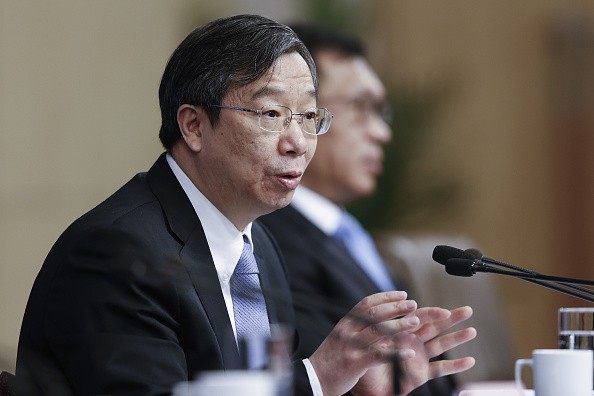For the first time, China will give the United States a 250 billion yuan ($38 billion) investment quota to buy Chinese stocks, bonds and other assets, the vice governor of China’s central bank said on Tuesday as part of the country’s efforts to spread the use of the yuan overseas.
China has previously given similar quota allocations to several countries, including the U.K., France and Singapore, but this would be the biggest given to a single jurisdiction outside of Hong Kong.
The quota will be allocated under the Renminbi Qualified Foreign Institutional Investor (RQFII) scheme, Yi Gang, vice governor of the People's Bank of China (PBC), announced at the bilateral Strategic and Economic Dialogue in Beijing, without providing additional details such as a time frame.
China will also pick a qualified bank to conduct yuan clearing business in the U.S., Yi added.
The RQFII program, which was established in late 2011, enables foreign financial institutions to use offshore yuan to purchase securities in mainland China, including stocks, bonds, and money market investments.
"The ability to do RMB transactions in the United States will be a real advantage, to small firms in particular and to large businesses that are not financial businesses," U.S. Treasury Secretary Jack Lew said on Tuesday. "It will make it easier, it will make it cheaper."
Under the new quota, the RQFII is expected to greatly expand from its allocation of 501.77 billion yuan in May earlier this year.
Ivan Shi, head of research at Shanghai-based fund consultancy firm Z-Ben Advisors, told CNBC that the move boosted the chances that global investment index compiler MSCI will include Chinese shares in its index, a decision that could come next week, as it expands foreign access to China's stock market.
"But its implementation depends on how widely the yuan is used in the U.S. and how much interest U.S. investors have toward Chinese stocks and bonds," he added.
China's regulators have been pushing to give foreign investors more access to the country's financial markets in order to make it broader and draw in more capital inflows.
But foreign interest has cooled following a crash in Chinese equity markets in 2015 and the subsequent heavy-handed government intervention to shore them up.
China's slowing economy, burgeoning debt, and anxiety over its currency policy have also kept potential investors at bay.
Industry insiders have also said that the quota is more symbolic in nature, as there have been other channels made available for investing in Chinese assets since the RQFII was set up in 2011.
China's central bank in February said that it would allow all types of financial institutions that are registered outside the country to purchase bonds and would eliminate quotas for medium- and long-term investors.
Yi said on Tuesday that the internationalization of the yuan would be market-oriented.
Lew said during the talks that China is committed to continuing "market-oriented exchange rate reform that allows for two-way flexibility" of its national currency.
The U.S. Treasury issued a statement following the talks, saying that China has agreed to allow foreign companies to have bigger equity stakes in domestic securities and fund management companies.
China also committed to allow qualified overseas firms and joint ventures to apply to engage in the private securities fund management business, including secondary market trading of securities, the statement said.
In addition to discussions about the internationalization of the yuan, China and the U.S. have entered an agreement to initiate reforms at the International Monetary Fund (IMF) to raise quotas for emerging markets, which determines their voting powers in the organization and access to financing.
"Both sides reiterated the allocation of IMF quotas should be shifted toward emerging markets and developing countries," Lew said.




























